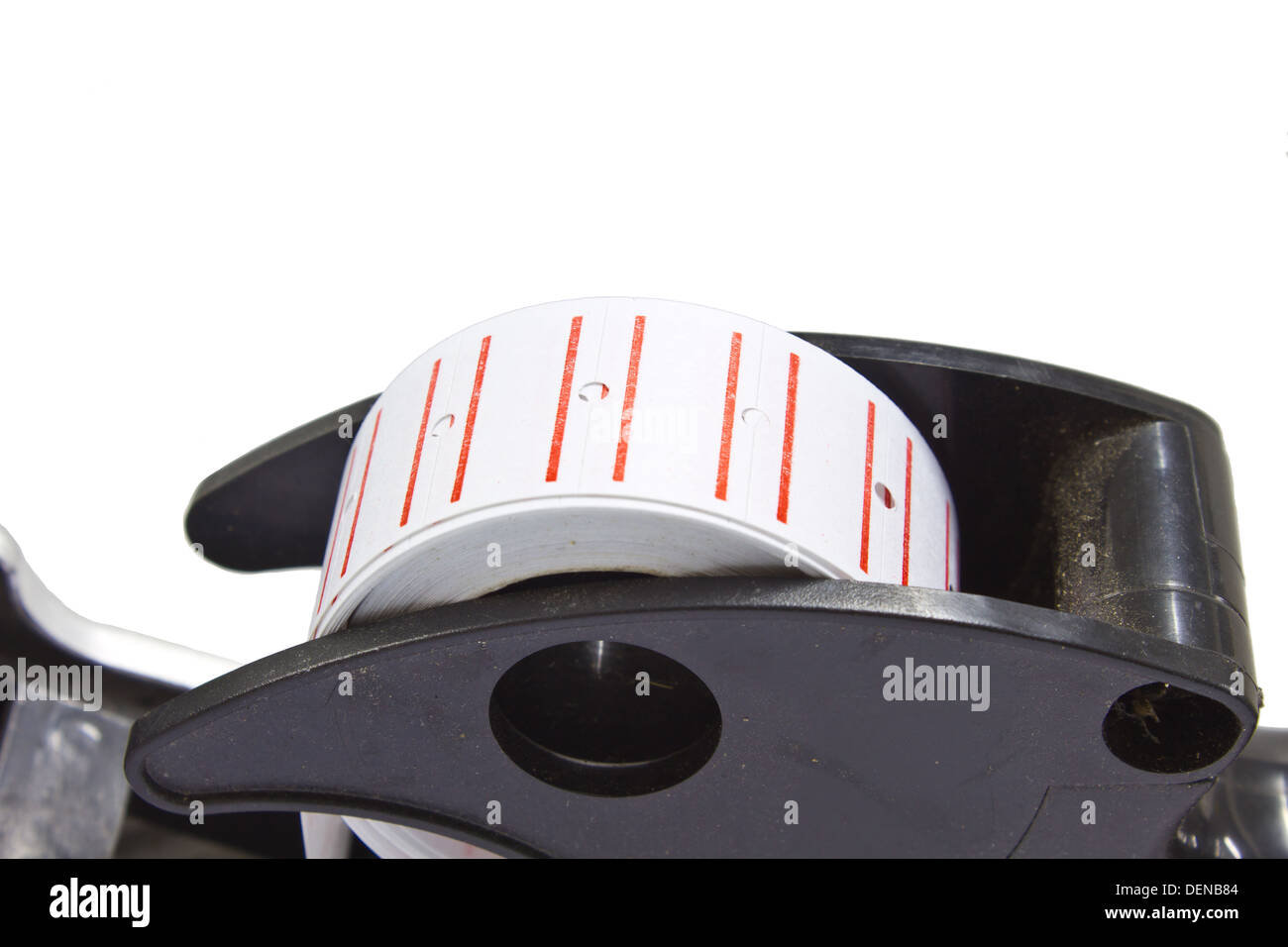What Is The Price Of Renting A U-Haul Trailer? types.truckstrend.com
Moving, clearing out clutter, or transporting large items often brings with it the logistical challenge of how to get your belongings from point A to point B. For many, renting a U-Haul trailer presents an ideal, cost-effective, and flexible solution. Unlike renting an entire moving truck, a trailer allows you to leverage your existing vehicle’s towing capacity, potentially saving on fuel and rental costs. However, before you hitch up and hit the road, understanding the intricate pricing structure of U-Haul trailer rentals is crucial for effective budgeting and a smooth moving experience.
The price of renting a U-Haul trailer isn’t a fixed number; it’s a dynamic calculation influenced by a variety of factors, from the specific type and size of the trailer you need to the duration of your rental and whether your journey is local or a long-distance one-way trip. This comprehensive guide will meticulously break down these elements, offering you the insights needed to accurately estimate your costs and make an informed decision for your next hauling project.
What Is The Price Of Renting A U-Haul Trailer?
Understanding U-Haul Trailer Types and Their Purpose
U-Haul offers a diverse fleet of trailers designed to meet various hauling needs. Each type comes with its own set of dimensions, weight capacities, and, consequently, its own price point. Familiarizing yourself with these options is the first step in understanding your potential costs.
-
Utility Trailers: These are open-top trailers, ideal for hauling items that might be awkwardly shaped, require overhead clearance, or are less susceptible to weather elements. They are perfect for yard waste, construction materials, motorcycles, ATVs, or furniture that can be securely tied down.
- Sizes: Commonly available in 4×7, 5×8, 5×10, and 6×12 feet.
- Best For: Landscaping projects, home renovations, transporting recreational vehicles, general utility hauling.

-
Cargo Trailers (Enclosed): Offering superior protection from weather, road debris, and theft, enclosed cargo trailers are the go-to choice for sensitive items like electronics, antiques, or furniture that needs to stay clean and dry. They provide added security and peace of mind.
- Sizes: Popular sizes include 4×8, 5×8, 5×10, and 6×12 feet.
- Best For: Moving household goods, transporting valuables, long-distance moves where protection is paramount.


Car Trailers (Vehicle Transporters): Specifically designed for moving vehicles, these come in two main types:
- Tow Dollies: These lift only the front wheels of the towed vehicle off the ground, leaving the rear wheels on the road. They are more affordable and lighter.
- Auto Transports: These are full trailers that lift all four wheels of the towed vehicle off the ground, providing maximum protection and reducing wear and tear on the towed vehicle.
- Best For: Relocating a car, transporting a non-running vehicle, or moving a classic car.
Each trailer type serves a unique purpose, and selecting the right one based on your specific items and their protection needs is critical, as it directly impacts the rental price.
Factors Influencing U-Haul Trailer Rental Costs
The price of renting a U-Haul trailer is not static. Several key factors contribute to the final amount you’ll pay:
-
Trailer Size and Type: As outlined above, larger trailers and specialized options like enclosed cargo trailers or auto transports are generally more expensive than smaller utility trailers due to their increased capacity, construction, and demand.
-
Duration of Rental: U-Haul primarily offers daily rental rates for trailers. For one-way rentals, a specific number of days is typically allocated based on the distance, and exceeding this duration will incur additional daily charges.
-
Distance and Rental Type (Local vs. One-Way): This is perhaps the most significant determinant of cost.
- In-Town (Local) Rentals: These are typically fixed daily rates where you pick up and return the trailer to the same U-Haul location. They are often the most economical option for short distances.
- One-Way Rentals: Designed for long-distance moves, you pick up the trailer at one location and drop it off at a different U-Haul location. The pricing for one-way rentals is dynamic, based on factors like distance, demand for equipment at the origin and destination, and the pre-determined number of rental days. One-way rates are almost always higher than local daily rates.
-
Location and Demand: Prices can fluctuate significantly based on the geographic location (city, state) and the current demand for trailers. Renting in a major metropolitan area or during peak moving seasons (summer, end of the month, holidays) can lead to higher prices due to limited availability.
-
Optional Add-ons and Services:
- Damage Waivers/Insurance: U-Haul offers optional coverage plans like SafeTow® and SafeTrip® to protect you from financial liability in case of damage to the trailer or your personal vehicle. While optional, these add to the overall cost.
- Moving Supplies: Dollies, moving blankets, boxes, and tie-downs are available for rent or purchase, adding to your expense if needed.
- Hitch Installation/Wiring: If your vehicle isn’t equipped with a proper hitch receiver or trailer wiring, U-Haul service centers can install them, but this is an additional, often significant, cost.
-
Taxes and Fees: Local sales taxes, environmental fees, and other administrative charges are typically added to the base rental price, so always account for these in your budget.
Calculating Your U-Haul Trailer Rental Cost: A Step-by-Step Guide
Estimating your U-Haul trailer rental cost is straightforward if you follow these steps:
-
Determine Your Needs:
- What are you moving? List all items and estimate their dimensions and total weight.
- How far are you moving? Local or long-distance?
- What vehicle will be towing? Know its make, model, year, and its maximum towing capacity. U-Haul has strict requirements for towing vehicles.
-
Choose the Right Trailer: Based on your items, select the appropriate trailer type (utility, cargo, car) and the smallest size that can safely accommodate everything. Overestimating size means overpaying.
-
Select Rental Type: Decide if you need an "In-Town" (same location pick-up/drop-off) or "One-Way" (different location drop-off) rental.
-
Get a Quote from U-Haul: The most accurate way to determine the price is to use U-Haul’s official website.
- Go to U-Haul.com.
- Navigate to the "Trailers" section.
- Enter your pick-up location, desired date, and return location (if one-way).
- Select the trailer type and size.
- The system will provide an estimated cost, including any available discounts or applicable fees. Be sure to click through to see the total, including taxes.
-
Consider Optional Add-ons: During the online quoting process, you’ll be prompted to add insurance, moving supplies, or hitch services. Factor these into your total.
-
Account for Fuel and Vehicle Readiness: Remember that towing a trailer significantly increases your vehicle’s fuel consumption. Also, ensure your vehicle is properly equipped with a hitch and working electrical connections before you arrive for pickup, or budget for U-Haul to install them.
Hidden Costs and Important Considerations
While the online quote provides a good estimate, be aware of these potential additional costs and crucial considerations:
- Towing Vehicle Requirements: U-Haul has stringent safety requirements for towing vehicles. If your vehicle doesn’t meet the minimum weight, wheelbase, hitch class, or electrical connector standards for the chosen trailer, U-Haul will refuse the rental. This could force you to rent a U-Haul truck, significantly increasing your cost.
- Increased Fuel Consumption: Towing a heavy trailer can reduce your vehicle’s fuel efficiency by 30-50% or more. Factor in extra fuel costs, especially for long trips.
- Damage Waiver/Insurance: While optional, declining the damage waiver means you are fully liable for any damage to the U-Haul trailer. Check if your personal auto insurance policy covers rental trailers; many do not.
- Late Return Fees: Returning a trailer past its agreed-upon time can result in substantial late fees, often charged per day.
- Cleaning Fees: Return the trailer in the same clean condition you received it to avoid potential cleaning charges.
- Hitch and Wiring Installation: If you need these installed, U-Haul offers the service, but it’s an extra cost that can range from a couple of hundred dollars to over a thousand, depending on your vehicle and the equipment needed.
- Taxes: Always expect local and state taxes to be added to your final bill.
Tips for Saving Money on Your U-Haul Trailer Rental
To keep your trailer rental as budget-friendly as possible, consider these tips:
- Book in Advance: Especially during peak moving seasons (late spring to early fall) or end-of-month dates, booking your trailer several weeks out can secure better rates and ensure availability.
- Be Flexible with Dates: If your schedule allows, consider renting mid-week or during the off-season to potentially find lower rates.
- Choose the Smallest Trailer Needed: Don’t over-rent. Carefully estimate your items and select the smallest trailer that will safely fit everything to minimize cost.
- Compare One-Way vs. In-Town: For distances that are borderline, get quotes for both a local multi-day rental (if feasible to return) and a one-way rental to see which is more economical.
- Check Your Personal Insurance: Before purchasing U-Haul’s damage waiver, call your auto insurance provider to see if your policy extends coverage to rental trailers.
- Return On Time and Clean: Avoid late fees and cleaning charges by adhering to your rental agreement.
- Ensure Your Vehicle is Ready: Have your hitch, ball mount, and electrical wiring installed and tested before you go to pick up the trailer. This prevents last-minute installation costs and delays.
- Load Properly: Distribute weight evenly and secure all items to prevent shifting during transit, which can affect handling and fuel efficiency.
Practical Advice and Actionable Insights
Before finalizing your U-Haul trailer rental, take these practical steps:
- Measure Everything: Measure the largest items you plan to transport, as well as the dimensions of the trailer opening, to ensure a fit.
- Verify Towing Capacity: Double-check your vehicle’s owner’s manual for its exact towing capacity (both weight and tongue weight limits). Do not guess.
- Get a Written Quote: Always rely on a detailed quote generated directly from U-Haul’s website, as prices can change quickly. Print or save a copy.
- Inspect the Trailer: Before leaving the U-Haul location, thoroughly inspect the trailer for existing damage, working lights, and tire condition. Report any issues immediately.
- Understand Terms and Conditions: Read the rental agreement carefully, paying close attention to return times, fuel policies, and damage responsibility.
U-Haul Trailer Rental Price Table (Estimated Ranges)
Please note: The prices provided below are estimated ranges for typical scenarios and are subject to significant variation based on location, demand, rental duration, and whether it’s an in-town or one-way rental. Always obtain an official quote from U-Haul for accurate pricing for your specific needs. Prices do not include taxes, optional insurance, or additional services like hitch installation.
| Trailer Type | Size (L x W x H) | Approx. Capacity (Weight) | Typical Daily Local Rate (Range) | Typical One-Way Rate (Example Range)* | Common Use Case |
|---|---|---|---|---|---|
| Utility Trailers | |||||
| 4×7 | 7′ x 4′ x 2′ (open) | ~1,700 lbs | $14.95 – $19.95 | $70 – $200+ | Small items, yard work, light hauling |
| 5×8 | 8′ x 5′ x 2′ (open) | ~1,800 lbs | $19.95 – $24.95 | $80 – $250+ | Small furniture, appliances, light construction |
| 5×10 | 10′ x 5′ x 2′ (open) | ~1,800 lbs | $24.95 – $29.95 | $90 – $300+ | Larger furniture, medium loads |
| 6×12 | 12′ x 6′ x 2′ (open) | ~2,500 lbs | $29.95 – $34.95 | $100 – $400+ | Large appliances, riding mowers, larger loads |
| Cargo Trailers | |||||
| 4×8 | 8′ x 4′ x 4′ (encl.) | ~1,600 lbs | $18.95 – $23.95 | $75 – $220+ | Small apartments, valuables, weather protection |
| 5×8 | 8′ x 5′ x 5′ (encl.) | ~1,800 lbs | $22.95 – $27.95 | $85 – $280+ | Small moves, furniture, boxes |
| 5×10 | 10′ x 5′ x 5′ (encl.) | ~1,800 lbs | $27.95 – $32.95 | $95 – $350+ | 1-bedroom apartment, larger furniture |
| 6×12 | 12′ x 6′ x 6′ (encl.) | ~2,500 lbs | $34.95 – $39.95 | $110 – $450+ | 2-bedroom home, large furniture, appliances |
| Car Trailers | |||||
| Tow Dolly | N/A | ~3,450 lbs (vehicle) | $35 – $50 | $150 – $400+ | Front-wheel drive vehicles, short distances |
| Auto Transport | N/A | ~5,290 lbs (vehicle) | $55 – $70 | $200 – $700+ | All vehicles, long distances, maximum protection |
*One-way rates are highly variable and depend on specific origin/destination, dates, and availability. The ranges provided are illustrative.
Frequently Asked Questions (FAQ) About U-Haul Trailer Rental Prices
Q1: How far in advance should I book a U-Haul trailer?
A1: It’s recommended to book as far in advance as possible, especially during peak moving seasons (summer, end of the month) or holidays. Booking 2-4 weeks ahead can help secure your desired trailer and potentially better rates.
Q2: Do I need insurance for a U-Haul trailer rental?
A2: While optional, it’s highly recommended. U-Haul offers SafeTow® (for trailer damage) and SafeTrip® (for personal vehicle and medical coverage). Check your personal auto insurance policy first; many do not cover rental trailers. If yours doesn’t, U-Haul’s waiver provides peace of mind.
Q3: What if my vehicle can’t tow the trailer I need?
A3: U-Haul has strict safety standards. If your vehicle does not meet the towing requirements (weight, hitch class, wiring) for the trailer you wish to rent, they will not allow you to rent it. You would then need to consider renting a U-Haul truck or finding an alternative towing vehicle.
Q4: Are hitches and wiring included in the rental price?
A4: No. You are responsible for ensuring your towing vehicle has a properly installed hitch receiver, ball mount, and working electrical connections (usually 4-flat or 7-way) suitable for the trailer. U-Haul service centers can install these for an additional cost if needed.
Q5: Can I pick up and drop off a U-Haul trailer at different locations?
A5: Yes, this is what a "one-way" rental is for. You specify your desired pick-up and drop-off locations when making the reservation. For "in-town" rentals, you must return the trailer to the same location where you picked it up.
Q6: What happens if I return the trailer late?
A6: U-Haul typically charges late fees, often a daily rate, for trailers returned past the agreed-upon time. It’s crucial to communicate with U-Haul if you anticipate a delay to understand potential charges and avoid issues.
Q7: Do U-Haul trailer prices vary by location?
A7: Yes, prices can vary significantly between different cities and states due to factors like local operating costs, demand, and availability of equipment. Always get a quote specific to your pick-up and drop-off locations.
Q8: Can I get a refund if I return the trailer early?
A8: For one-way rentals, early returns generally do not result in a partial refund, as the price is typically set for the trip duration. For daily local rentals, policies may vary, so it’s best to confirm with the specific U-Haul location or their customer service.
Conclusion
Renting a U-Haul trailer is undoubtedly a practical and often economical solution for a myriad of hauling needs, from moving household items to transporting vehicles or handling home improvement projects. However, the seemingly simple act of renting involves a nuanced pricing structure. The final cost hinges on key variables such as the trailer type and size, the duration and nature of your rental (local vs. one-way), and even the specific geographic location and current demand.
By thoroughly understanding these factors, leveraging U-Haul’s online quoting tools, and being mindful of potential hidden costs like fuel consumption and hitch installation, you can accurately budget for your rental. Following the practical advice and tips outlined in this guide will not only help you save money but also ensure a smooth, stress-free, and successful hauling experience. With thoughtful planning and a clear understanding of the pricing, your U-Haul trailer rental can be an efficient and affordable asset for your next big task.
